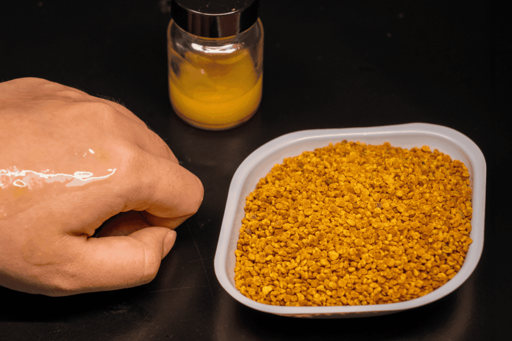Scientists have invented a pollen-based sunscreen, which their results suggest is as effective in blocking harmful ultraviolet rays as sunscreens containing chemicals that contribute to coral bleaching and pollution in oceans. In a recently published study, the researchers also showed their pollen sunscreen doesn’t harm corals. They added 1 milliliter (0.034 ounces) of both their pollen-based and a commercial sunscreen to separate 10-liter (2.6-gallon) seawater tanks with healthy coral for 60 days. The commercial sunscreen caused coral bleaching in two days and coral death in six days, but the pollen sunscreen gel had no impact on corals, which remained healthy for the duration of the experiment. “We wanted to develop an affordable and effective natural sunscreen that is non-allergenic to humans and eco-friendly to the environment,” Nam-Joon Cho, the study’s lead author and a materials science and engineering professor at Nanyang Technological University, Singapore, said in a statement. The team tested sunscreens with pollen derived from both sunflowers and camellias. However, only the camellia pollen sunscreen reached a high sun protection factor (SPF) of about 27.3, meaning it blocks around 97% of the sun’s ultraviolet rays that can cause skin damage and cancer. Camellia pollen also generally doesn’t cause allergies. By comparison, sunflower pollen-derived sunscreen reached an SPF of less than 5, and the flower’s pollen can be allergenic. “We know that pollen is naturally UV-resistant, as its shell needs to protect its inner contents from harsh environmental conditions, including sunlight,” Cho said. “Our research aimed to develop a way…This article was originally published on Mongabay
From Conservation news via this RSS feed


